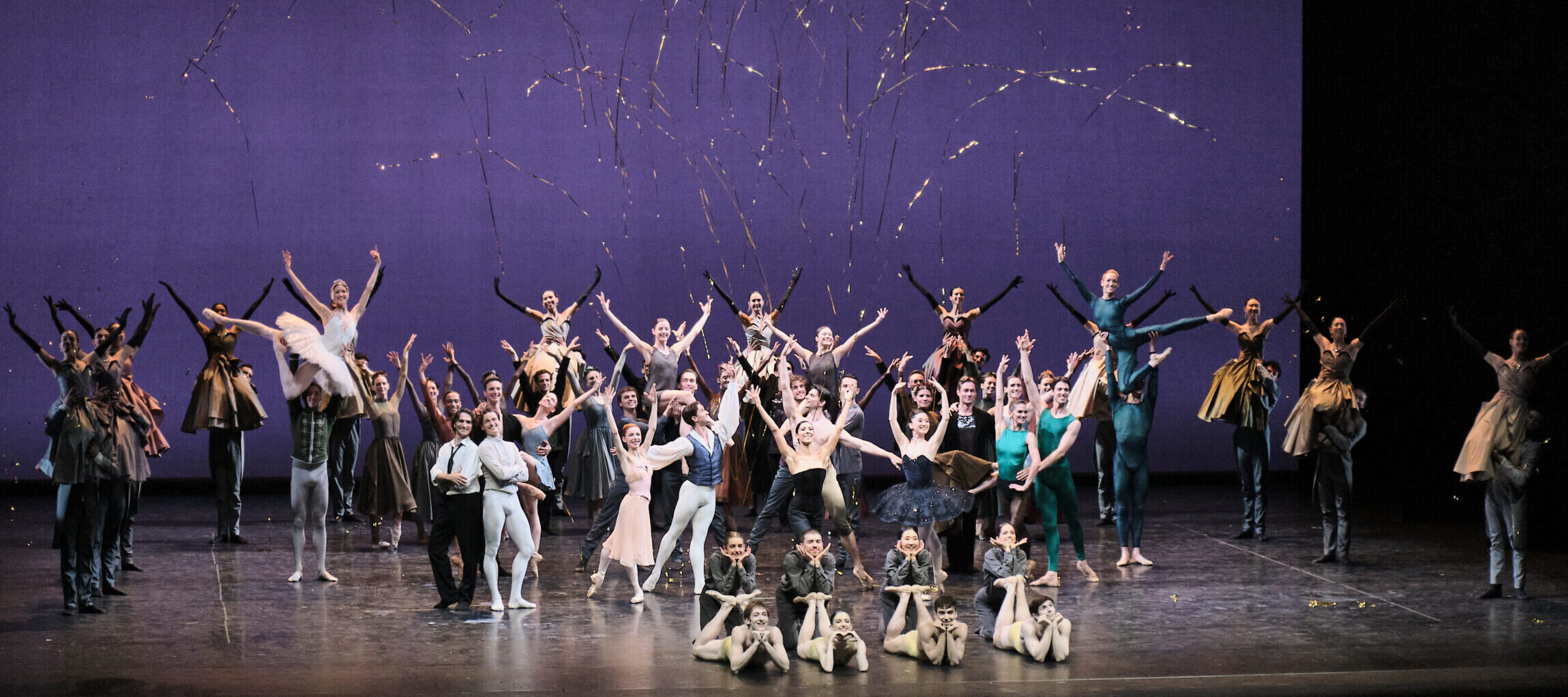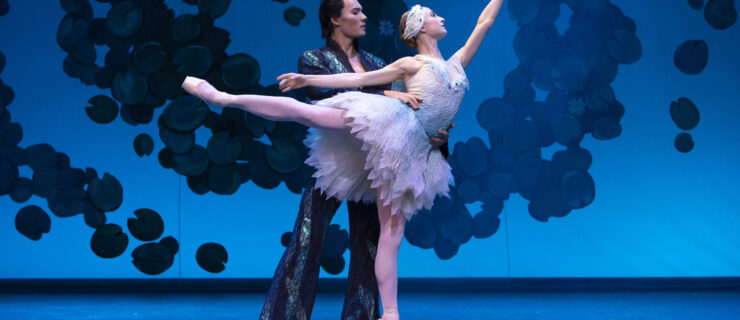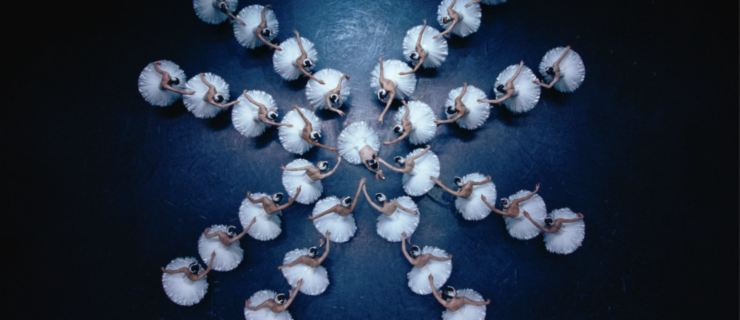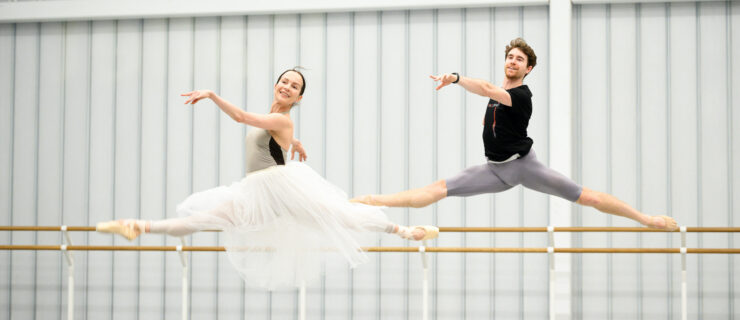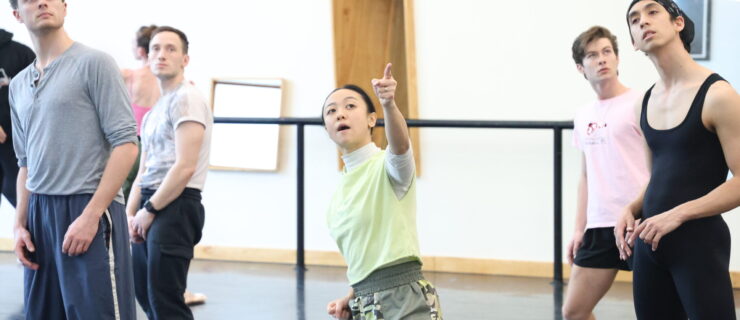Christian Spuck Reflects on His First Year Directing Staatsballett Berlin
It’s been a big year for Staatsballett Berlin: Not only has Germany’s largest ballet company celebrated its 20-year anniversary, but it has also had an extremely successful 2023–24 season, with the company reporting 98 percent ticket sales. The Staatsballett is carrying forward many of its most popular shows into next season as a result.
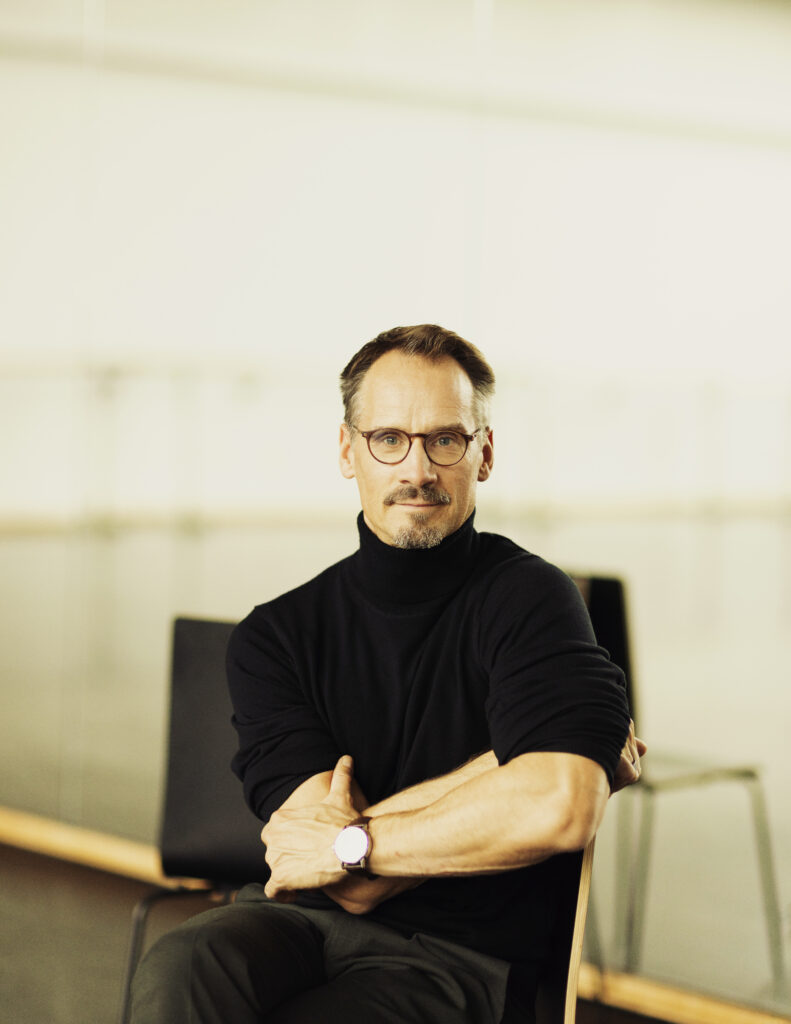
This year of milestones and achievements has been overseen by artistic director Christian Spuck, who assumed leadership of Staatsballett Berlin in 2023 following 11 years directing Ballett Zürich. During his time in Berlin, Spuck has not only focused on establishing a safe environment for art and creativity to thrive, he has also presented his own work. His interpretation of Gustave Flaubert’s Madame Bovary that premiered last year, for example, will be returning this September.
Pointe spoke with Spuck to find out more about his first year in Berlin, creating Bovary, and his vision for the future of the Staatsballett.
As a director, what attracted you to Staatsballett Berlin?
Staatsballett Berlin is the biggest company in Germany, so moving here felt like a great opportunity to put on productions that I wouldn’t have been able to in Zurich. We’re also the only company in the world that performs in three different opera houses [across one given city]. It makes things a bit complicated, but also very special and unique.
What have you learned about the company so far?
One-hundred and twenty people work at this institution. When I arrived, I understood very quickly that making sure that they are all happy is just as important as the company’s performances and artistic vision. This season, we’ve instituted a code of conduct and a mission statement to ensure everyone feels valued.
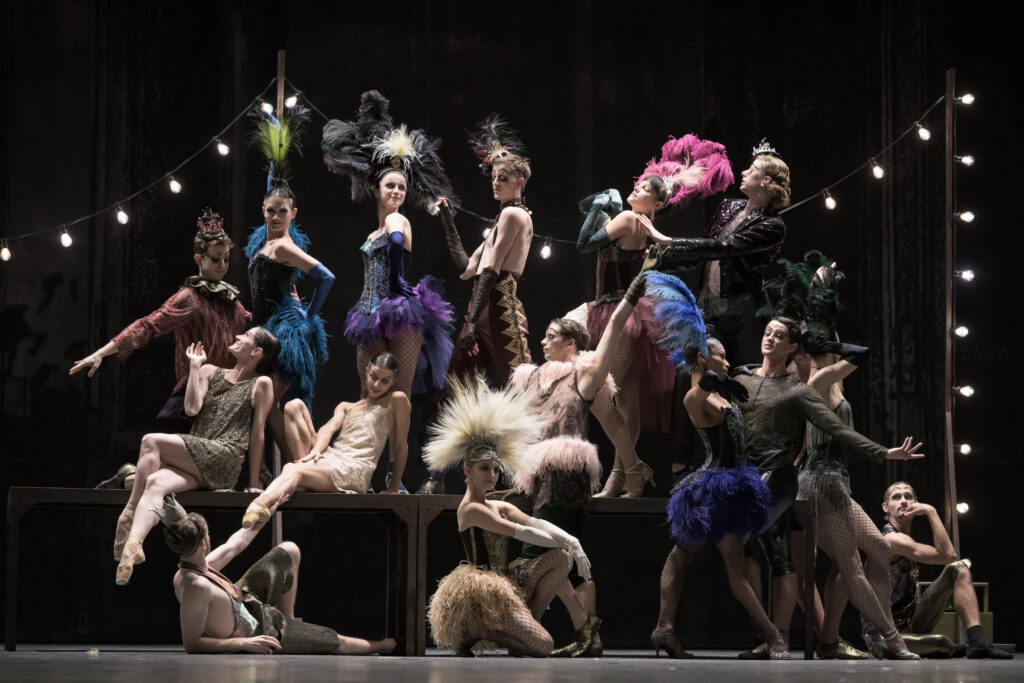
Are there any leadership strategies that you’ve brought with you from Zurich to Berlin?
In Zurich, I learned to maintain a degree of distance from all of my employees. We use physical touch, share a lot of emotions, and get very intimate in the studio, so it’s important to have boundaries. I have extensive feedback talks with the dancers, though, which I learn a lot from. You don’t have to be authoritarian as a leader. Sometimes, it’s smarter to listen to what people have to say to see what’s working and what can slowly be reformed.
In your 2023–24 season you celebrated Staatsballett Berlin’s 20th anniversary. How does it feel to be overseeing this milestone?
It’s been a bit strange, because I’ve only been here for a year! But I got a lot of information from my colleagues and we decided together how we wanted to celebrate. We had a big gala in July featuring contributions from many people who used to work here, like Maria Seletskaja. She used to be a soloist with the company. Now she’s a conductor [and the new music director of English National Ballet]. It’s one of the most impressive transitions I’ve ever witnessed.
We invited all of the former intendants to the gala, but none showed up. This shows that these 20 years haven’t been without issues. I hope that in the future this institution will be known for its art rather than internal conflicts.

What’s your vision for the upcoming 2024–25 season?
In ’23–24 we started to build a new repertoire. We introduced a Forsythe evening and a new Sol León production, as well as works by Sharon Eyal, Marcos Morau, and Crystal Pite. Most of these choreographic voices haven’t been presented in Berlin before. The demand for tickets was so high that we decided to bring them forward into ’24–25.
This season we’re going one step further. Edward Clug will present his A Midsummer Night’s Dream, and it will be the first time that I’ve given another choreographer the opportunity to create a full-length here.
I want our work to reflect the times that we live in, which are complex and filled with crises. If we only perform Giselle, Swan Lake, and Paquita, we’ll become a museum and will have no relevance to the outside world. The classics are still very important to me, but I want to present them from a 21st-century perspective.
This season you’ll also be presenting your own work, Bovary, which premiered last year. What interested you in exploring this story?
The idea of choreographing Madame Bovary had been in my head for a long time. The lead character, Emma, lives in a fantasy world and tries to be someone she isn’t. This is very relevant to our time. With social media, we’re forced to present ourselves in a way that other people want to see us, rather than how we actually are.
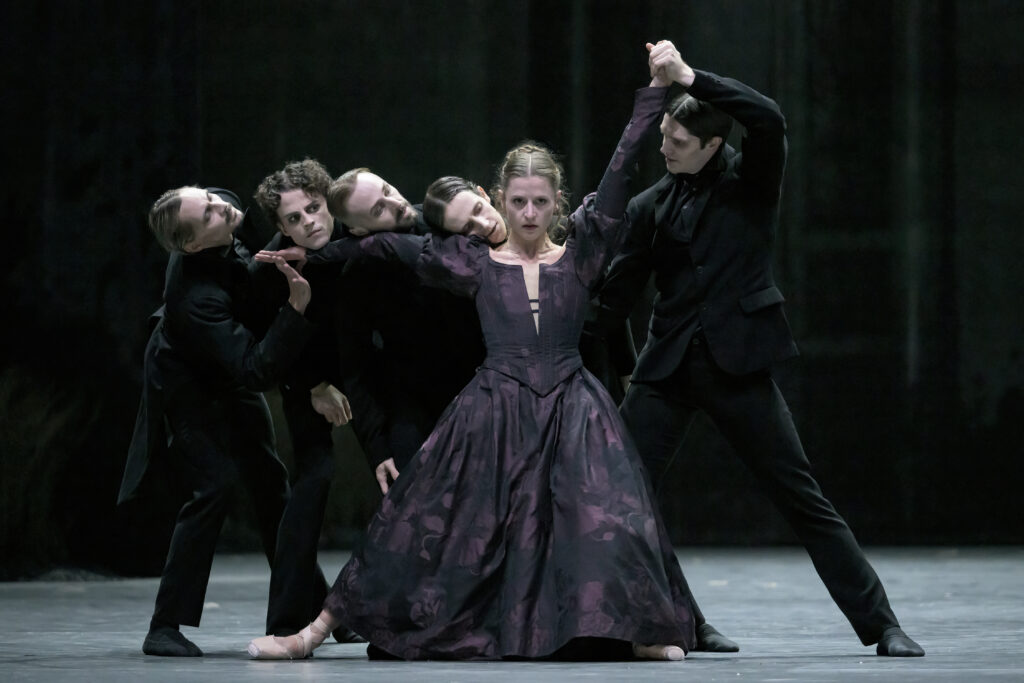
Your Bovary is, in part, about the search for female self-determination. What is your approach to ensuring diversity and fair opportunities at Staatsballett Berlin?
Dance is a very male-dominated field, and it’s only in the past 10 to 15 years that women’s voices have [significantly] started to be heard. It’s my dream that one day we can really choose who we work with based solely on quality. But, as it’s still not sunk into society that gender, sexuality, religion, and so forth don’t matter, we have to be very aware about who we hire and invite to create here. Thankfully, there’s so much talent out there that it’s easy to balance.
I get quite emotional about this topic. I grew up in a small German city in the ’80’s, and being homosexual was an issue. I was so ashamed and hid my identity for such a long time. Now, in the Western world, homosexuality is more respected. The next step is for trans and nonbinary people to be respected too. I think that if a lot of people, especially politicians, would dance a little bit more, they would be more open.
